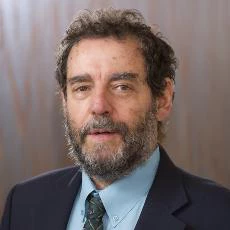
This week, multilateral development banks (MDBs) and IMF representatives gathered for Third International Conference on Financing for Development in Addis Ababa (FFD3) committed to extend more than $400 billion in financing over the next three years and vowed to work more closely with private and public sector partners to help mobilize the resources needed to meet the historic challenge of achieving the Sustainable Development Goals (SDGs).
From this perspective, FFD3 presented a unique forum for recasting development financing to meet the approach of the post-2015 development agenda. But more is needed. Investment needs in infrastructure alone reach up to US$1.5 trillion a year in emerging and developing countries.
Meeting the staggering but achievable needs of the SDG agenda requires everyone to make the best use of each dollar from every source. This means tracking with precision where, when and to whom has the money been disbursed and for what development end. It requires knowing precisely who the beneficiary was and being able to uniquely establish his/her identity.
This is the first time that a target relating specifically to identity has been put forward as part of the global goals, as target #16.9: “ P rovide legal identity to all, including birth registration, by 2030. ”
Not only there is an intrinsic value of conferring a universal legal identity, but the identity target in the post-2015 development agenda is instrumental in achieving many of the SDGs. Indeed, the provision of robust means of identification would support the achievement of at least 10 goals:
- Social protection, including for the most vulnerable;
- Assistance in dealing with shocks and disasters;
- Equal rights to economic resources, including property and finance;
- Empowerment of women;
- Improvements in maternal and child health;
- Coverage by vaccines and similar treatments;
- Improving energy efficiency and eliminating harmful energy subsidies;
- Child protection, including the ending of harmful child labor;
- Reducing remittance costs; and
- Reducing corruption, fighting crime and terrorism and strengthening and improving the equity of fiscal policy.
Last year, the World Bank Group launched the Identification for Development (ID4D) agenda to address SDG target 16.9 and to help approaching it in a more integrated multi-sector way. This initiative required building new alliances and reshaping existing development strategies. The World Bank has been actively engaged with the UN Technical Support Team sub-group on SDG goal 16 to help define robust indicators to monitor and measure progress on target #16.9 achievement by 2030.
In parallel, substantive discussions were held with UNICEF, the World Health Organization (WHO) and the Economic and Social Commission for Asia and the Pacific (ESCAP) on the Civil Registration and Vital Statistics (CRVS) agenda. This later culminated with the official launch in Addis Ababa of the Global Financing Facility, which includes financing for strengthening CRVS systems in countries aiming to build robust identification platforms for their citizens. Specifically, Canada committed US$16 million for the establishment of a global Center of Excellence for CRVS, which will help countries better monitor and track their progress towards the SDGs.
In an earlier post we mentioned that an SDG indicator for legal identity should embody the principle that no one should be denied access to social or economic participation, as well as to public services, for lack of identification credentials. This requires, among other things, that legal identity credentials should be available throughout the life cycle of the individual, be available to both poor and rich, and be sufficiently robust to be widely accepted under the regulations and practices of the country concerned. It might not always mean a specific identity credential such as a national ID card since the provision of many SDGs does not hinge on evidence of national status, but it requires universal access to robust “fit-for-purpose” identity.
The final post-2015 agenda, to be adopted at the UN General Assembly in September, represents the most important effort by the international community to address with the major development challenges facing the world today. The discussion in Addis Ababa focused more on financing, and it will take a lot more than aid from member states to deliver on the ambitious post-2015 development agenda.
More discussion is needed on the other steps needed, including political leadership, bold reforms and commitment to development-friendly policies, as measured, for example, by the Center for Global Development’s Commitment to Development Index. Better strategic focus is also required. Donors support at least half of the identity-related programs in developing countries and there should be more consideration of how this assistance can be better focused to support the SDGs. This could be a useful topic for consultation and discussion at the UN General Assembly meeting in September.



Join the Conversation